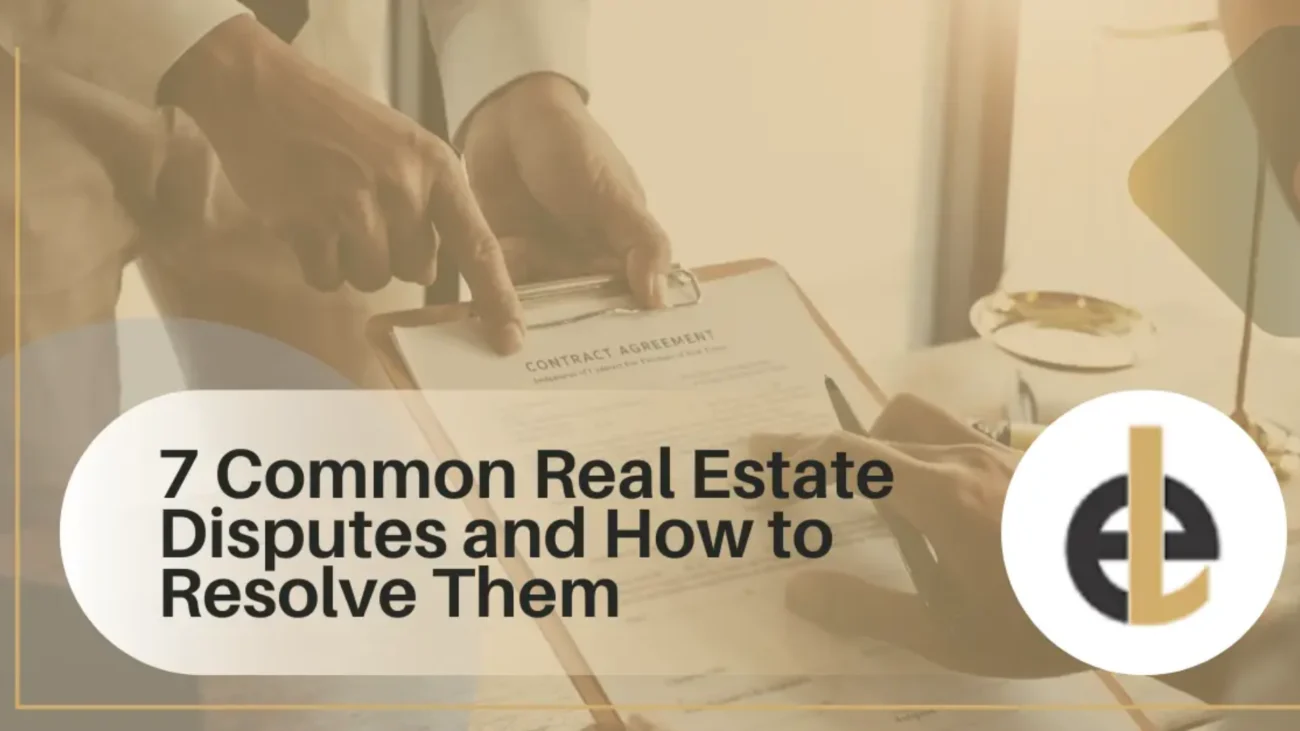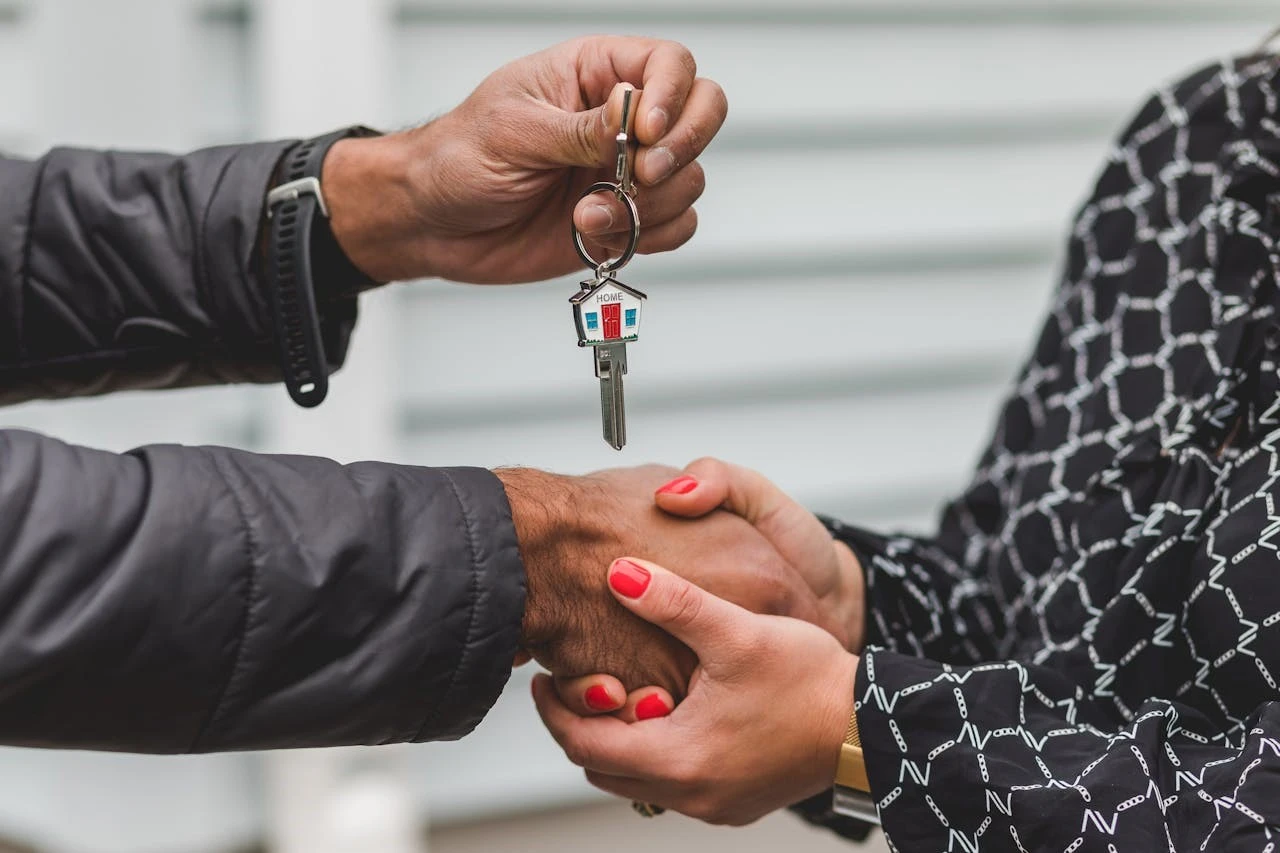
Property disputes are a common part of owning and renting houses, condos, and buildings in Canada. While working with a real estate lawyer Hamilton is ideal, you want to avoid courts and the expense and stress that follow. It is vital to remember that many of these disputes happen because of unclear terms or simple mistakes.
If you know what to look out for, you can avoid these before they lead to a lengthy legal course. In this guide, we will break down seven common types of real estate disputes and how to fix or prevent them.
Many property disputes start from unclear rules or broken promises. Some involve buyers, some involve landlords and tenants, and others have to do with neighbour troubles. Let’s go through the most common real estate disputes and helpful ways to avoid or resolve these issues safely.

Ownership rights issues can start with breach of contract, which happens when someone does not do what they agreed to in the purchase and sale agreement. For example, a buyer backs out of a real estate deal at the eleventh hour. A seller may fail to conduct repairs they promised, or a renter may break lease terms or move out too early, resulting in real estate legal disputes.
How to resolve: Make sure that you read the fine print of the contract before you sign it in order to avoid contract breaches and lease disagreements down the line. Ask questions if something is unclear or feels wrong. Make sure that all dates and costs are written clearly, along with the terms.
Title real estate disputes can happen when someone else claims they own your land or part of it. These claims can come from unpaid debts, old owners, or mistakes in legal papers. You might also find out someone else is listed as the owner after you buy the property.

How to resolve: Always do a full title search before buying to prevent title deed disputes and title issues. A real estate lawyer or title company can help you check the records. You should also buy title insurance, which protects you from problems that show up later. If a dispute starts, your lawyer can file a case to prove you are the real owner.
Sometimes a seller hides big problems with the home, like leaks or mould. They might also lie about zoning rules or repairs. These issues are called failure to disclose. Buyers often find out only after moving in, or the delay may lead to timely possession disputes.
How to resolve: Risk mitigation is key to solving real estate disputes here, which is why you should always get a full home inspection. Ask the seller direct questions and get answers in writing. If you find hidden problems later, you may be able to sue for your loss. On the other side, sellers should be honest to avoid legal trouble later.
One of the common residential real estate disputes happens when neighbours do not agree on where one yard or lot ends and the other begins. This might involve fences, trees, or driveways, as people sometimes build on land that is not theirs by mistake. These fights are common in older or rural areas.
How to resolve: This is one of the neighborhood conflicts that should not be tackled without a land surveyor. They will measure the property lines, while you can look at city or land records. Try to talk to your neighbour and show them the survey. If you cannot agree, you may need the help of a trusted law firm in Burlington. Mediation can be a great form of coming to terms about who owns the land. An official court hearing will result in marking the line to set a boundary.
Zoning rules decide how properties in different areas can be used, like for homes, shops, or other purposes. Ontario real estate law has clear rules for homeowners, and a problem occurs if someone uses a property in a way that breaks local zoning rules.

How to resolve: Disputes in real estate transactions can involve local authorities, as in this case. Contact your local planning or zoning office to check the zoning type of your lot. If the current use does not follow the rules, you can apply for a change or ask for special approval. A lawyer can guide the process and speak for you at zoning board meetings to help reach a solution.
Property ownership disputes also involve landlords and tenants, usually about conflicts about rules, rent, repairs, or how a lease ends. A renter might not pay rent on time, or a landlord may put off fixing broken things. Problems also occur over damage deposits or eviction notices.
How to resolve: Both sides should follow the lease and know their rights. Tenants must report problems quickly, while landlords need to give proper notice before entering or asking someone to leave. If things go wrong, try talking first. Both parties can also use a local rental board if the problem goes too far, while the next step is legal counsel with a lawyer.
Disputes can occur when buyers or sellers do not see eye to eye with agents about pay or who should get it. At times, more than one agent asks for money from the same deal. These issues often come from deals that are not clear, or when people don’t talk things through.
How to resolve: Always sign a written contract that clearly explains how much commission will be paid and when. The contract should also list what services the agent will provide. Agents should keep records of their work and meetings with clients.
For any of these problems, a skilled real estate lawyer guides clients to other resolution options early on. If the dispute leads to a real estate litigation process, the lawyer prepares filings, gathers evidence, negotiates at pre-trial stages, and represents the client at trial to secure the best possible outcome.
Property problems can be stressful, but they often have simple fixes if handled early. You can prevent most of these disputes when you read every contract, ask questions, and maintain records.
Don’t delay getting help from experts to solve things before they reach court. As a leading team of real estate lawyers in Ontario, Estofa Law can help you protect your property, whether owned or rented. We also represent landlords and other parties involved in any real estate contract. Our team focuses on resolution methods such as negotiation to avoid costly and lengthy court hearings.
Count on us for honest and accurate legal advice and representation in matters of real estate disputes. Book a consultation today to discuss your needs.
5500 North Service Road Suite 300-27, Burlington, ON L7L 6W6
Estofa Law is a real estate law firm dedicated to serving clients in Burlington, Oakville, Milton, Hamilton, and Toronto.
Copyright © 2025 | Estofa Law Professional Corporation | All Rights Reserved